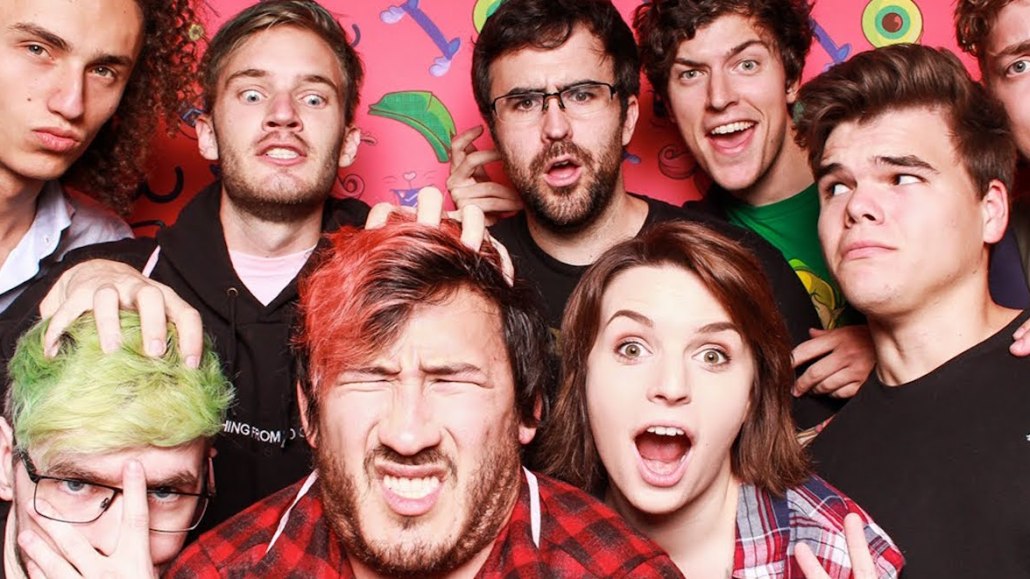Secure your place at the Digiday Media Buying Summit in Nashville, March 2-4
‘We’re all against the algorithm’: YouTube, Facebook creators gravitate to group chats for support

There was a slight panic among the Facebook creator community earlier this month after news broke that Facebook plans to shut down its Audience Network ad network’s mobile web arm. These creators wondered — wrongly — if this meant that the social network was shutting down its video monetization program. But instead of contacting their partner managers at Facebook, who serve as the company’s creator liaisons, the creators turned to various Facebook Groups dedicated to creators for answers. “When you go onto Groups, people like me and others give advice. It’s like a little community,” said one Facebook creator who asked to remain anonymous.
Facebook creators are not the only ones turning to one another to stay in the know on platform changes. YouTube creators also use group chats on platforms like Discord to alert one another to unannounced algorithm updates and trade tips on how often to insert mid-roll ads in their videos (every two-and-a-half minutes) and how to design their videos’ thumbnails (face on the left side so it’s not blocked by the timestamp). While Facebook and YouTube employ partner managers that are meant to provide this type of support to creators, creators have grown frustrated with partner managers not providing advanced notice or sufficient insight into platforms’ changes. In their stead, the creators have found they can often provide more comprehensive support to one another.
“It’s easier as creators to share information with other creators because we personally experience these [changes] on the daily compared to partner managers. They are just given information,” said Roi Fabito, a YouTube creator who goes by the name “Guava Juice” and has more than 14 million subscribers on the platform.
Creator-centric group chats have been around for at least a few years. The sizes of these typically private, invite-only forums can vary from tens to hundreds of creators. But creators have found these forums to be more vital within the past year or so as Facebook and YouTube make changes to their platforms’ algorithms in response to scrutiny from regulators, consumer advocacy groups and advertisers.
YouTube creators’ group chats were abuzz in September 2019 after YouTube announced that it stop serving targeted ads on videos that it considered kids’ content. “Nobody knew what to do, so creators were reaching out [to ask one another] what to do,” said Carter Sharer, a YouTube creator with more than 6 million subscribers who also serves as CEO of Team RAR, a collective of YouTube creators.
Platforms’ algorithm changes are particularly popular topics of discussions in these group chats. One group chat on Discord that Sharer belongs to has messages organized into 12 categories, including one dedicated to YouTube’s algorithm. Some creators feel like the group chats are the best option for finding out about changes to the platforms’ algorithms and how those changes may impact their videos.
“I don’t know if even YouTube gives the YouTube reps enough information [about the platform’s algorithm changes and their potential impacts on creators]. Even for YouTube, it’s hard for them to see how it’s going to affect people until they actually make changes,” said a YouTube creator who asked to remain anonymous.
In these groups chats, creators will often relay information they’ve gleaned about potential algorithm updates to see if others have heard the same or seen the change reflected in their videos’ analytics. In some cases, the members of the group chats have access to programs that are able to scan wide swaths of the platforms to gauge whether a change has been made that impacts specific creator communities, Sharer said. Fabito recalled one instance when a fellow creator posted a message to a group chat telling the other members to delete all copyrighted songs from their videos because YouTube was taking a stricter stance on people using that protected music.
Helpful as these groups chats can be for creators, they are not necessarily a replacement for creators’ partner managers at the platforms.
After YouTube announced the kids’ content change in September, Sharer talked to his YouTube partner manager who offered to run a program that would assess his channel’s risk of being penalized by the change. The program judged the risk for Sharer’s channel to be minimal, but the partner manager also made clear that the assessment was not a guarantee of how the actual change would affect his channel. Ultimately YouTube’s assessment proved correct for Sharer, but it wasn’t until Sharer talked to more creators with channels similar to his and heard that they weren’t worried about the change that his own worries subsided.
“Since we’re all creators, we’re here to support each other because we’re all against the algorithm, to be honest,” Fabito said.
More in Future of TV

Future of TV Briefing: CTV identity matches are usually wrong
This week’s Future of TV Briefing looks at a Truthset study showing the error rate for matches between IP and deterministic IDs like email addresses can exceed 84%.

Future of TV Briefing: How AI agents prime TV advertising for ‘premium automation’
This week’s Future of TV Briefing looks at how agentic AI can enable TV networks to automate the sales of complex linear TV ad packages.

Inside NBCUniversal’s test to use AI agents to sell ads against a live NFL game
NBCUniversal’s Ryan McConville joined the Digiday Podcast to break down the mechanics of the company’s first-of-its-kind agentic AI ad sales test.





